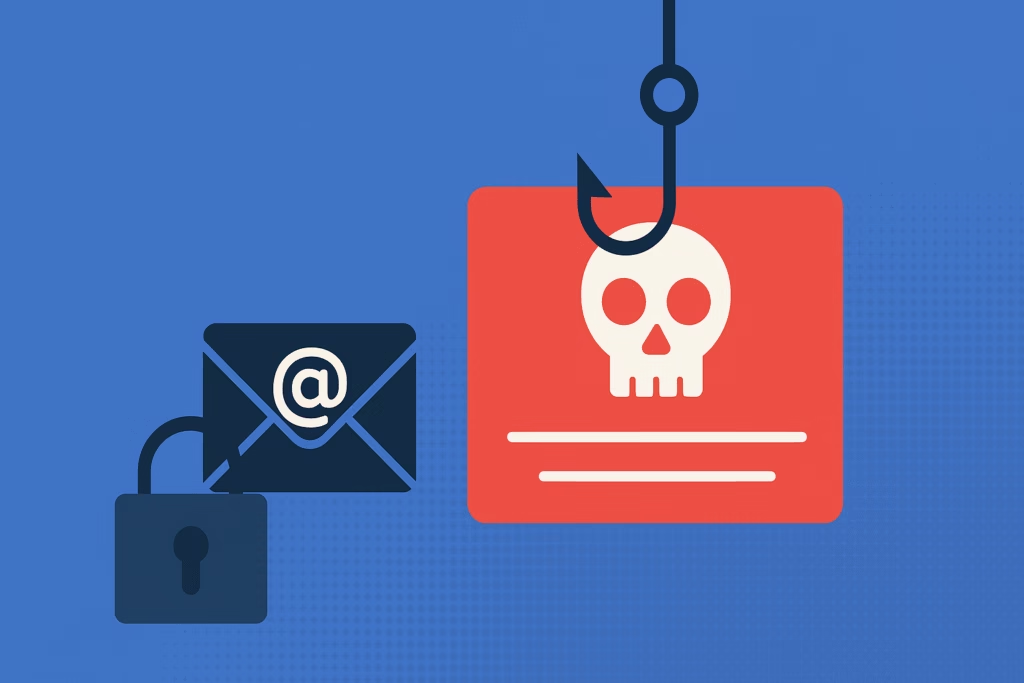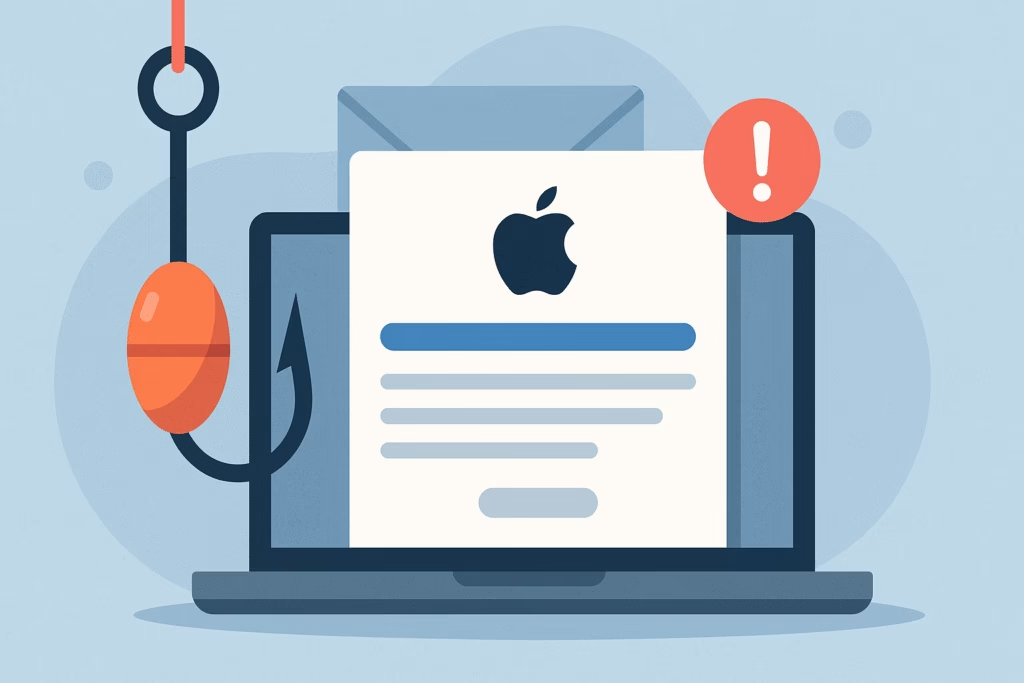
Millions of American drivers rely on E-ZPass electronic toll collection systems daily, making their accounts attractive targets for cybercriminals. Recent months have seen a dramatic surge in EZ-Pass phishing scams, with fraudsters exploiting drivers’ trust in legitimate toll road communications to steal personal and financial information.
These sophisticated phishing campaigns disguise themselves as official E-ZPass notifications, typically claiming unpaid tolls, account suspensions, or billing issues that require immediate action. The consequences extend far beyond inconvenience – victims often face identity theft, unauthorized charges, and compromised financial accounts that can take months to resolve.
Understanding how these scams operate and implementing proper security measures has become essential for the estimated 35 million E-ZPass users across 19 states. This comprehensive guide reveals the tactics scammers use, shows you how to identify fraudulent communications, and provides actionable steps to protect yourself from becoming their next victim.
How EZ-Pass Phishing Scams Target Drivers
EZ-Pass phishing scams exploit the routine nature of toll road communications. Scammers understand that drivers expect periodic notifications about their accounts, making fraudulent messages less suspicious when they arrive at the right time.
Common EZ-Pass Phishing Tactics
Cybercriminals employ several sophisticated methods to deceive E-ZPass users:
- Urgent Payment Demands: Messages claiming immediate payment required to avoid penalties or account suspension
- Account Verification Requests: Fake notifications requesting login credentials to “verify” account information
- Suspicious Activity Alerts: False security warnings prompting users to click malicious links
- Billing Error Notifications: Claims of processing errors requiring immediate account updates
- Refund Offers: Too-good-to-be-true refund promises requiring personal information submission
These EZ-Pass phishing attempts typically arrive via email, text message, or phone calls. The Federal Trade Commission reports that toll-related scams have increased by over 300% since 2021, with E-ZPass being the most frequently impersonated service.
Sophisticated Impersonation Techniques
Modern EZ-Pass phishing scams demonstrate remarkable attention to detail. Scammers create convincing replicas of official communications, including:
- Accurate E-ZPass logos and branding elements
- Professional email formatting matching legitimate notifications
- Realistic sender addresses that appear official at first glance
- References to specific toll roads and locations
- Urgent language designed to bypass critical thinking
Red Flags: Identifying EZ-Pass Phishing Attempts
Recognizing the warning signs of EZ-Pass phishing scams requires careful attention to communication details that scammers often overlook or cannot perfectly replicate.
Email and Message Warning Signs
Legitimate E-ZPass communications follow consistent patterns that fraudulent messages struggle to replicate accurately:
- Generic Greetings: Authentic E-ZPass emails address you by name, while scams often use “Dear Customer” or similar generic terms
- Suspicious Sender Addresses: Check for slight misspellings or domains that don’t match official E-ZPass websites
- Urgent Deadlines: Legitimate toll authorities provide reasonable timeframes, not 24-hour ultimatums
- Grammatical Errors: Professional organizations maintain high communication standards
- Unsolicited Attachments: Official E-ZPass notifications rarely include unexpected file attachments
Link and Website Analysis
EZ-Pass phishing scams often direct victims to fraudulent websites designed to steal credentials and personal information. Before clicking any links, examine them carefully:
- Hover over links to preview the destination URL without clicking
- Look for slight misspellings in domain names (e.g., “e-zpass” vs. “ezpass”)
- Check for secure connections (HTTPS) on any payment pages
- Verify the website matches official E-ZPass styling and functionality
- Be wary of pages requesting excessive personal information
Real-World EZ-Pass Phishing Examples
Understanding actual scam examples helps drivers recognize similar attempts targeting their accounts. Recent EZ-Pass phishing campaigns have demonstrated increasingly sophisticated approaches.
The “Unpaid Toll” Email Scam
One prevalent EZ-Pass phishing scam involves emails claiming unpaid tolls with threatening language about legal consequences. These messages typically include:
- Subject lines like “URGENT: Unpaid E-ZPass Toll – Action Required”
- Claims of specific toll amounts owed (often $12.50 or similar small amounts)
- Threats of increased penalties or legal action within 48 hours
- Links to fake payment portals requesting credit card information
The FTC’s guidance on phishing recognition emphasizes that legitimate toll authorities provide multiple contact methods and reasonable payment timeframes, unlike these urgent scam attempts.
Text Message Toll Scams
SMS-based EZ-Pass phishing has become increasingly common, with scammers sending messages like: “E-ZPass Notice: Your account has an outstanding balance of $11.70. Pay now to avoid additional fees: [malicious link]”
These text-based scams exploit the immediate nature of SMS communication and the assumption that official organizations might send urgent notifications via text.
Step-by-Step Protection Strategy
Protecting yourself from EZ-Pass phishing scams requires a multi-layered approach combining awareness, verification procedures, and security best practices.
Immediate Response Protocol
When you receive any E-ZPass communication, follow these verification steps:
- Pause Before Acting: Never respond immediately to urgent toll-related messages
- Verify Through Official Channels: Log into your actual E-ZPass account through the official website
- Cross-Reference Information: Compare message details with your account status
- Contact Customer Service: Call the official E-ZPass number if you have concerns
- Report Suspicious Messages: Forward phishing attempts to your state’s E-ZPass authority
Account Security Best Practices
Strengthening your E-ZPass account security creates additional barriers against successful phishing attacks:
- Enable Account Notifications: Set up legitimate alerts through your official E-ZPass account
- Use Strong, Unique Passwords: Create complex passwords specific to your E-ZPass account
- Enable Two-Factor Authentication: Add extra security layers where available
- Regular Account Monitoring: Check your account monthly for unauthorized activity
- Update Contact Information: Ensure your account has current contact details
What to Do If You’ve Been Targeted
Quick response to EZ-Pass phishing attempts can minimize potential damage and help protect other drivers from similar scams.
Immediate Actions for Phishing Victims
If you’ve clicked suspicious links or provided information to potential scammers:
- Change Your Passwords: Immediately update your E-ZPass account password and any other accounts using similar credentials
- Monitor Financial Accounts: Check bank and credit card statements for unauthorized transactions
- Contact Your Bank: Alert financial institutions about potential compromise
- File Reports: Submit complaints to the FTC and your state’s attorney general
- Consider Credit Monitoring: Sign up for credit monitoring services to detect identity theft
Reporting EZ-Pass Phishing Scams
Reporting phishing attempts helps authorities track and combat these crimes while protecting other potential victims. Key reporting channels include:
- Your state’s E-ZPass customer service center
- FTC’s online fraud reporting system
- The FBI’s Internet Crime Complaint Center (IC3)
- Your email provider’s spam/phishing reporting feature
Technology Solutions for Enhanced Protection
Modern cybersecurity tools can provide additional layers of protection against EZ-Pass phishing scams and other social engineering attacks.
Email Security Measures
Implementing robust email security significantly reduces exposure to phishing attempts:
- Advanced Spam Filters: Use email providers with sophisticated phishing detection
- Link Verification Tools: Install browser extensions that check suspicious URLs
- Attachment Scanners: Ensure comprehensive malware protection for email attachments
- Domain Authentication: Look for email providers supporting SPF, DKIM, and DMARC protocols
Professional-grade phishing protection services like PhishDef provide comprehensive email security solutions that can identify and block sophisticated phishing attempts before they reach your inbox. These services use advanced machine learning algorithms to detect the subtle signs of fraudulent communications that often bypass standard spam filters.
Staying Ahead of Evolving Threats
EZ-Pass phishing scams continue evolving as cybercriminals develop new tactics and technologies. Staying informed about emerging threats helps maintain effective protection over time.
Current Trends in Toll Road Scams
Recent developments in EZ-Pass phishing include:
- Voice Phishing (Vishing): Phone calls claiming to be E-ZPass representatives
- Social Media Integration: Scams spreading through social media platforms
- Mobile App Impersonation: Fake E-ZPass apps designed to steal credentials
- QR Code Scams: Malicious QR codes claiming to link to payment portals
Key Takeaways for E-ZPass Users
Protecting yourself from EZ-Pass phishing scams requires consistent vigilance and proper security practices. Remember these essential points:
- Always verify urgent toll communications through official channels before taking action
- Legitimate E-ZPass authorities never demand immediate payment via email or text
- Use strong, unique passwords and enable available security features on your account
- Report suspicious communications to help protect other drivers
- Consider professional phishing protection services for comprehensive email security
The fight against EZ-Pass phishing scams requires both individual awareness and community action. By staying informed about current threats and implementing proper security measures, you can protect yourself while contributing to the broader effort to combat these fraudulent schemes.
Don’t let cybercriminals exploit your trust in essential services like E-ZPass. Take action today to secure your accounts and communications. Consider implementing comprehensive phishing protection with PhishDef’s advanced email security solutions, designed to identify and block sophisticated social engineering attacks before they can compromise your personal information. Protect your digital life with proven cybersecurity technology that evolves alongside emerging threats.


